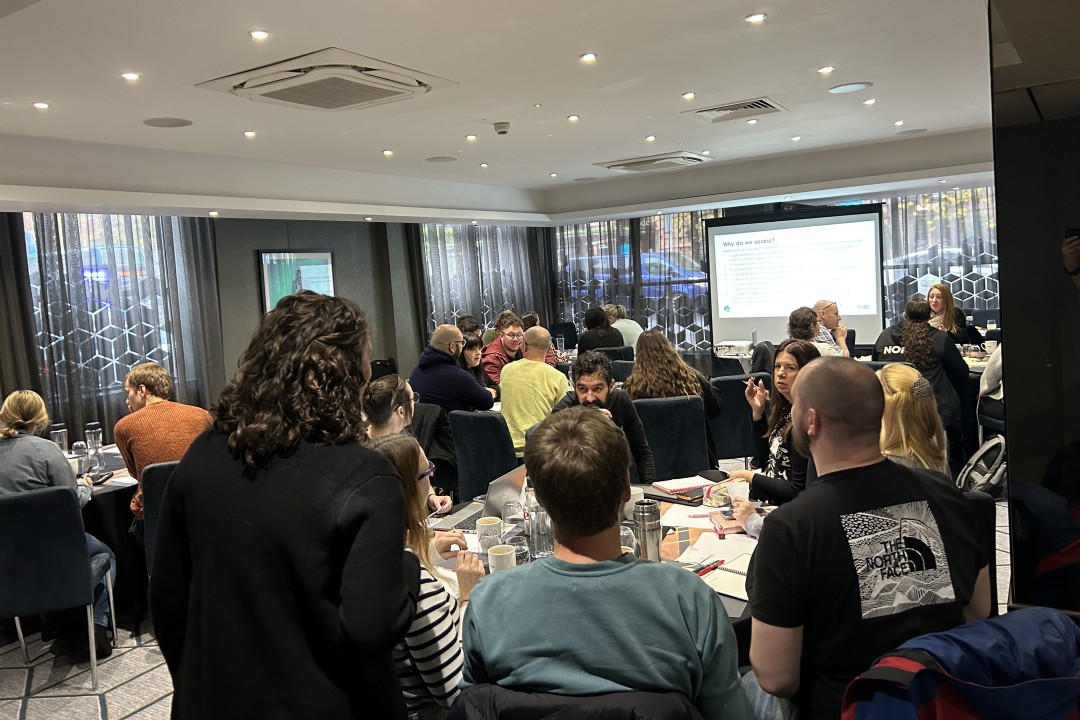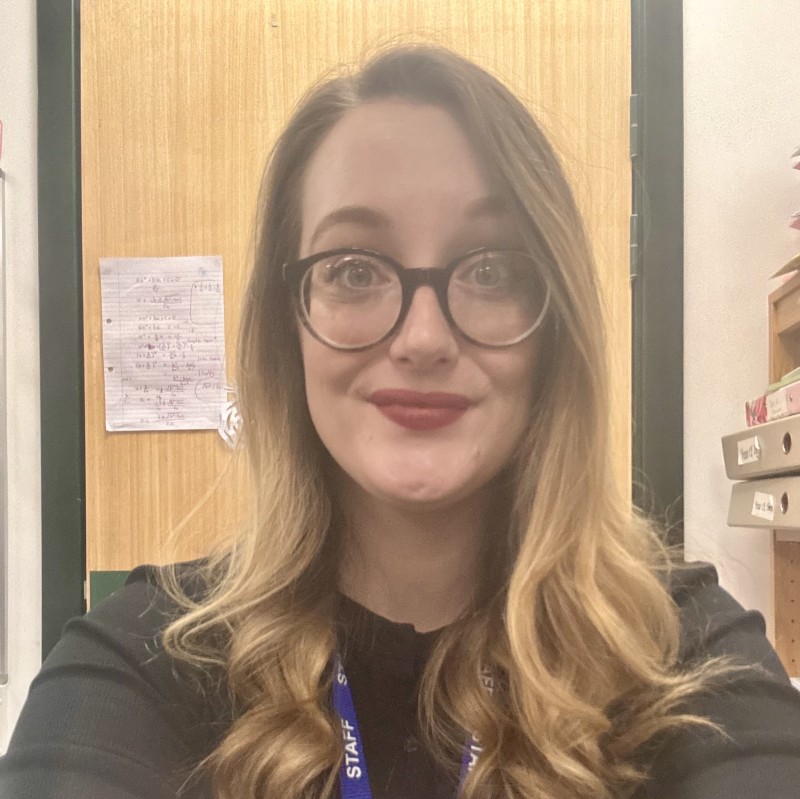Building depth, confidence and collaboration through the Secondary Mastery Specialist Programme
A teacher shares how the programme has influenced her practice, her department, and her students
23/10/2025

Ofsted and the Education Endowment Foundation (EEF) have highlighted in recent maths subject reports that strengthening subject and pedagogical knowledge leads to better student outcomes. Katie-Jayne Martin shares how the fully-funded Secondary Mastery Specialist Programme has transformed her teaching and led to lasting improvement in her school.
Gillingham School in rural North Dorset is a large secondary with around 1,800 students and a thriving sixth form. The maths department is one of the biggest in the school, with 17 teachers offering GCSE, Core Maths, A level Maths, Further Maths and Statistics. The school teaches in mixed-attainment groups until Year 10, which makes the department’s collaborative approach especially important.
Assistant subject lead Katie-Jayne Martin recently completed the fully-funded Secondary Mastery Specialist Programme through Jurassic Maths Hub. Her journey began after a colleague who had previously completed the programme encouraged her to apply. ‘Luckily, I was successful. There was already a hunger in our department to embed and sustain teaching for mastery, and I wanted to help refine that.’
Deep thinking and professional growth
For Katie-Jayne, the professional development she received was transformative. ‘It was an opportunity to sit down and really think deeply and carefully about the maths I was teaching,’ she says. ‘The sessions were small-scale and focused on the detail of how understanding develops within a lesson, but they completely changed my practice. It made me realise how to support students’ understanding rather than just move them through procedures.’
Before joining the programme, Katie-Jayne says her teaching had been effective but largely procedural. ‘I thought I was teaching for depth, but I wasn’t. I didn’t know what I didn’t know. Now I think much more carefully about what students are thinking about in each moment and how to build their understanding step by step.’
The programme also changed how she views professional development. ‘It upskilled me so I can upskill myself,’ she says. ‘I have the confidence now to spot something useful online and adapt it for my classroom.’
A new culture of collaboration
Before the department’s involvement with the Maths Hub, professional development tended to focus on administration or practical tips. ‘There wasn’t really a culture of teachers delivering PD for colleagues,’ she explains. ‘Now, the first ten minutes of every meeting is about our practice – something mathematical to think about. That’s quite unique in our school.’
Through her participation in the Professional Development (PD) Lead Programme, which she completed during the second year of the Secondary Mastery Specialist Programme, she has also grown in confidence leading training for others. The PD Lead Programme helps participants develop the knowledge and skills to design, lead and evaluate professional development within their own departments.
‘It was nerve-wracking at first, delivering PD to mathematicians,’ she admits. ‘But I realised I was actually teaching them something new. That really built my confidence.’
She used her first session delivering departmental PD to introduce manipulatives, starting with counters for directed number. ‘We didn’t really use any concrete manipulatives before. Now we’re beginning to use them across Year 7, and it’s built staff confidence and consistency.’
Impact on students
The effects are clear both in classrooms and outcomes. ‘Students are picking up the maths a lot more quickly because we’re concentrating on developing a deeper conceptual understanding,’ Katie-Jayne says. ‘They’re retaining knowledge better, and we’re delighted with our GCSE results – they reflect the high-quality provision we offer as a maths department. Those were the students who’ve had collaboratively-planned lessons all the way from Year 7.’
Her classroom feels different, too. ‘Students don’t mind making mistakes or getting things wrong. Before, I felt the pressure to get through content, and some students were left behind. I’m a different teacher now, and the kids are happier and more successful in my lessons.’
Looking ahead
The department is now expanding its focus on manipulatives and plans to apply a mastery lens to A-level teaching next. ‘If you’re a head of department, it’s the best thing you can do,’ she says. ‘It’s a big time investment, but the change is worth it. You need the right person – someone reflective and motivated – but the impact on teaching and learning is huge.’
Her advice to teachers considering it for themselves is simple: ‘It’s the best thing I’ve ever done for my teaching. You’ll think differently, teach differently, and your students will benefit.’
Take the next step to transform your teaching
Applications for the Secondary Mastery Specialist Programme in 2026/27 are now open, the application window closes on 23 April 2026.
Apply now